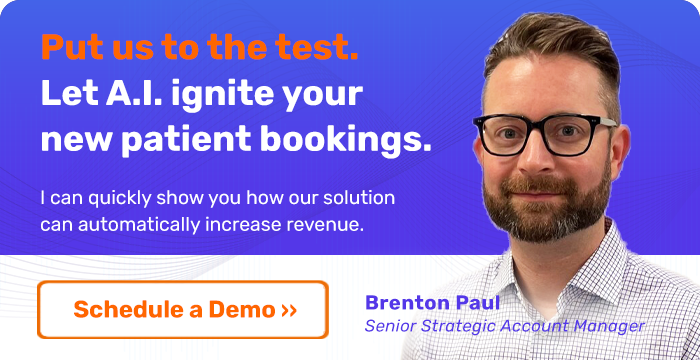November 2019--"When the team feels appreciated, there is higher engagement, higher retention and profitability," says Holly Mitchell, leadership coach and founder of The LeadWell Network. Psychological studies tell us that individuals vary in what feels like appreciation to them, so Mitchell reminds us that even when you think you are demonstrating appreciation, it may not feel that way to some or all of your team.
“Stephen Covey talks about an emotional bank account, and when you are in relationships with people, whether personal or professional, you are either making deposits or you are making withdrawals in those bank accounts,” says Mitchell, who talks about five ways you can express appreciation. Matching the right language to each person requires observation and insight.
Words of Affirmation and Appreciation
People have a deep desire to be acknowledged, and some of them need to be acknowledged with words. Do they prefer public or private praise? “This is really important,” says Mitchell. A Level One compliment is courteous and feels transactional. An example, is “Thanks for that.” It doesn't necessarily feel like appreciation. A Level Two compliment is more specific. An example is, “Thanks for staying late to help me see that patient.” This is not the highest level of compliment, though, because you are praising the act rather than the person who did the act. A Level Three compliment praises the qualities of the person. For example, “I really appreciated that you stayed late with me to see that patient. You're always so reliable, and we're really lucky to have you.”
“Because you've called them reliable, you've named a quality of who they are as a person. Those kinds of compliments are the kind people can live off of for six months or a year,” says Mitchell.
"Be mindful of the opposite," says Mitchell. Criticism can be damaging to someone whose language of appreciation is words. Criticism can lead to mistrust. You want to make more positive deposits in that bank account than withdrawals when it comes to constructive feedback.
Quality Time
For some, true quality time is social interaction; but in general, you can make quality time deposits by taking time for one-on-one or small group conversations. Not giving a team member your time and true attention can be destructive to the relationship.
“How often do you have one-on-ones with your team? Do you sit down? Do you ask them about their personal and professional lives? What's going well? What are your goals? How can I help support you in those goals? This is really a powerful deposit for a quality time person,” says Mitchell. “They have this deep desire to be understood and heard. So, resist the urge to multitask when you're having conversations with people.”
Acts of Service
Mitchell says many individuals who go into healthcare, feel appreciated by acts of service. Teamwork and supporting the team are important to them. They enjoy giving back to the community. Mitchell advises dentists to intentionally create opportunities for team members to support each other.
“The interesting thing about acts-of-service people is they usually don't ask for help, because they're usually in a giving mode versus a receiving help mode,” says Mitchell. “But, if you want to really make a deposit in their bank account, you want to do it without them having to ask. Do something that you know they need without offering or asking in the first place. That's the best kind of service. Just jump in.” With acts-of-service people, the opposite can destroy the relationship. “If you leave at the end of the day, they may feel it was a betrayal of trust that you bailed on them and that you didn't jump in to help.”
Tangible Gifts
The right gift makes all the difference to gift people. Money and gift cards don’t work for them. They want you to think about who they are and what they really like and to purchase a gift that aligns with their values and their interests. “Maybe start a spreadsheet in your office of people's hobbies or favorite things to eat, and then when you want to appreciate somebody, you have that list at your fingertips,” suggests Mitchell. “Imagine you got them a gift card to Starbucks, but they don't drink coffee. How would that feel? A gifts person will feel invisible.”
Physical Touch
The fifth language of appreciation is physical touch. You can see the energizing effect of this when football and basketball teams give each other a shoulder bump or other physical acknowledgement of a job well done. Would members of your team feel comfortable with a fist bump, high five, or handshake? In a professional environment, Mitchell does not advise hugs. She does advise getting clarity about what others will find comfortable and appropriate. Meet them where they are.
Recognition Versus Appreciation
“Just because you pay somebody well and you say thank you, it doesn't necessarily mean they feel appreciated,” says Mitchell. Recognition focuses more on things like bonus plans that are temporary and transactional. “They don't necessarily create that sense of engagement, appreciation and long term loyalty in your employees.”
Focus on What Inspires
Appreciation focuses on “the who they are.” To show your appreciation for your team’s efforts, understand what inspires each individual. What is meaningful to each of them? “Reward what qualities you want to see, so you can reinforce that behavior,” says Mitchell, “and do it in line with their language of appreciation.”
Subscribe to our blog for the latest updates
By submitting this form you will be receiving our latest updates on post. We're committed to your privacy. Patient Prism uses the information you provide to us to contact you about our relevant content, products, and services. You may unsubscribe from these communications at any time.
- Recent
- Popular











